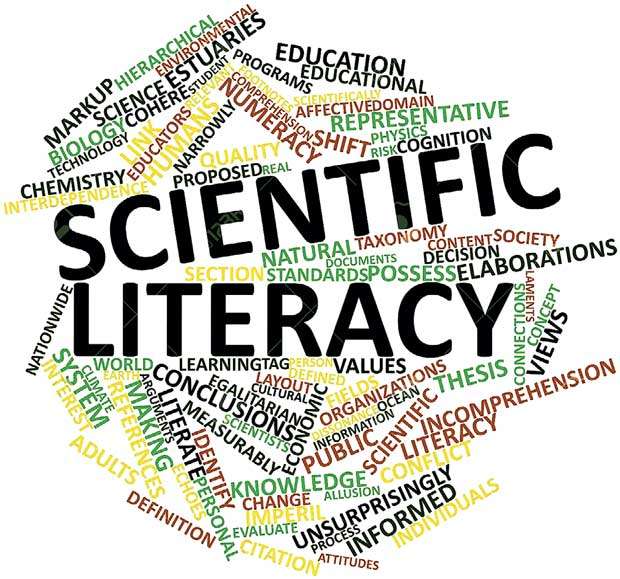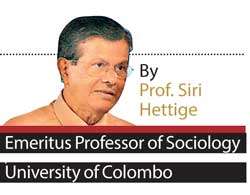31 Jul 2018 - {{hitsCtrl.values.hits}}

 When many developing countries had very low levels of literacy, international institutions like UNESCO articulated the need to improve literacy levels in these countries. In more recent years, most developing countries have achieved high rates of literacy. On the other hand , persisting challenges of social and economic development coupled with rapid scientific and technological advancements in the world, many countries have recognised the need for their general populations to go beyond simple reading and writing ability to embrace a range of other aptitudes in order to be able to function more effectively in a more challenging environment. These include scientific, environmental and computer literacy.
When many developing countries had very low levels of literacy, international institutions like UNESCO articulated the need to improve literacy levels in these countries. In more recent years, most developing countries have achieved high rates of literacy. On the other hand , persisting challenges of social and economic development coupled with rapid scientific and technological advancements in the world, many countries have recognised the need for their general populations to go beyond simple reading and writing ability to embrace a range of other aptitudes in order to be able to function more effectively in a more challenging environment. These include scientific, environmental and computer literacy.
Scientific literacy denotes ‘ people’s knowledge and understanding of scientific concepts and processes necessary for making rational decisions in their daily lives and participation in informed public discourses. In other words, a general familiarity with matters of modern science helps them understand the world around them in a more factual manner. As is well known, the growing environmental challenges demand the general population to be conversant with matters connected with the environment so that they can contribute to addressing emerging issues more effectively. So, is the case with the fast changing communication technologies. A familiarity with digital technology helps people to deal with challenges and opportunities they present.
The lack of critical thinking and analytical skills is a major hindrance to innovation which is considered as a precondition for finding practical solutions to a myriad of problems that human societies face today
Risks and benefits of modern technology
Evidence of modern scientific advancement is ubiquitous in almost all parts of the world today. Use of technological gadgets is common even in less developed societies as is evident from the widespread use of mobile technologies. While the benefits are often obvious to many people, the fact that there are also risks associated with modern technology is not so obvious and known to many people. These include issues of cyber security, threats to personal well being and safety, increasing sense of social isolation, relational problems, addiction to and dependence on technology, etc. The risks involved can vary across countries depending on diverse factors. New research can shed more light on the above and other issues and educate the public accordingly.
What is equally important to note is that, in many developing countries including Sri Lanka, the connection of most people to modern science is mostly through their passive relationship to useful products of scientific research such as mobile phones and household gadgets rather than due any internalization of values, methods and ethos of modern science. This is partly due to the kind of general education that they are exposed to and partly due to the dominance of non-scientific discourses in society in the mass media, religious institutions and even politics. In fact, early and sustained exposure to religious rituals undermines critical and analytical skills in children and youth. Surveys have shown consistently that, unlike youth in the developed world, the vast majority of youth in Sri Lanka have a strong religious rather than a scientific orientation, not to mentions the adult population. The lack of critical thinking and analytical skills is a major hindrance to innovation which is considered as a precondition for finding practical solutions to a myriad of problems that human societies face today. As is well known, our education system does not promote innovation but encourages rote learning and is based on memory testing examinations leading to paper qualifications.
The lack of critical thinking and analytical skills among school leavers and others has wide ranging implications. Firstly, it prevents them from playing a constructive role in society as they by and large become blind followers of populist politicians, religious leaders and demagogues. Secondly, school leavers and even university graduates without such skills look for less demanding and less challenging jobs in the state sector, often making them dependent on political patronage or leave the country for unskilled jobs. And, finally, the lack of highly skilled work. The lack of educational reforms to improve the quality of education to make it more skill-oriented and the persisting neglect of research and development by successive governments over several decades have made the situation worse. Any perceptive observer of Sri Lanka’s development scene would realize that the country is trapped in a vicious cycle. For example, predominance of low value traditional exports, chronic dependence on high value technology intensive product imports, consequent widening trade gap, increasing export of labour, wage inflation, high cost of production and living, foreign borrowings, accumulating debts, low investment in education and research, low skilled labor force, and so on. Country’s development challenges are hardly discussed in terms of the above vicious cycle and almost all politicians talk about other things and carry on regardless. No leader seems to be prepared to challenge the hegemony of the religious establishment in public affairs and point out the need to restore modern science to its due place in education and public life.
While we continue to innovate in novel religious rituals and persist with archaic ideas due to poor education, we want to export unskilled labour to East Asian countries where the political leaders know that their countries can be competitive in the world not by resorting to and promoting religious rituals but by investing in modern education and research. As is well known, most of these countries have some of the highest rates of public investment in these areas in comparison to the rest of the world. Universities and research institutes in these countries not only train scientific personnel needed by industry but also come up with new products and processes for industrial and other sectors. By contrast, Sri Lankan institutions have lagged far behind and even the long standing research institutes in diverse areas have been neglected over the years. There are many factors that have contributed to this situation.
28 Oct 2024 1 hours ago
28 Oct 2024 2 hours ago
28 Oct 2024 5 hours ago